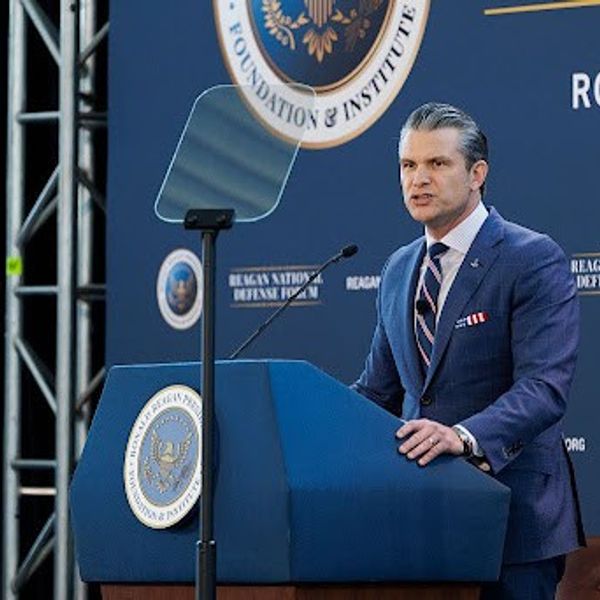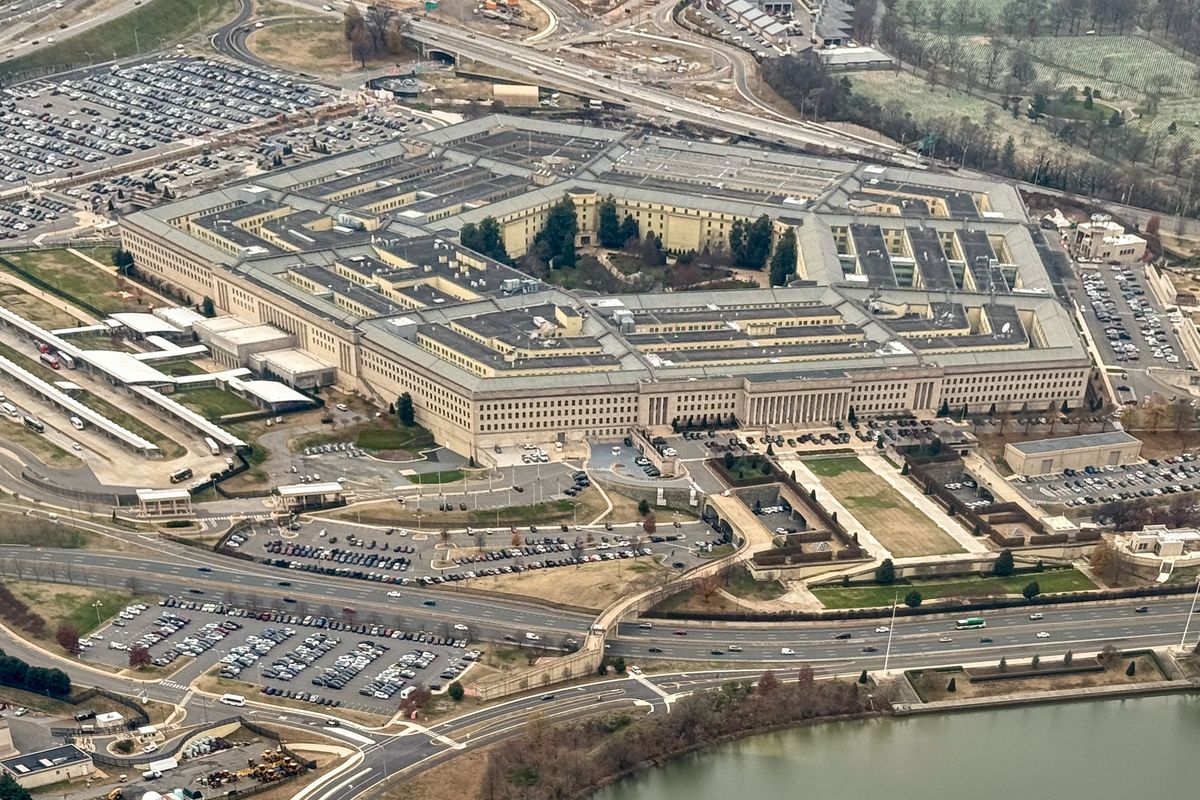OPINION — One result from the Hanoi Summit: North Korea continues to be a member of the elite nuclear weapons club, and probably will remain so for years to come.
National Security Advisor John Bolton, on CBS’ Face the Nation on Sunday, acknowledged that North Korea kept producing weapons grade nuclear fuel, despite suspending nuclear tests. Pyongyang reportedly has more than 30 nuclear weapons and fissile material for another six or seven more.
On Fox News Sunday, Bolton said, “There's no doubt over a protracted period of time, that the time does work in favor of the proliferator. Our judgment right now is the time works in the favor of the president's position as North Korea sees the effective (sic) of these sanctions taking greater effect.”
Fox’s Chris Wallace followed up by asking, “Is there any possibility that the U.S. would accept North Korea and allow them to keep some of their infrastructure?” Bolton responded, “I don’t see how that’s possible.”
For now, it is not only a possibility, it is a reality, whether Trump accepts it or not.
As of today, Kim has been the winner in the diplomatic exchanges with the U.S.
The North Korean leader started the process back in January 2018, when in his New Year’s speech, he announced, “Our country’s nuclear forces are capable of thwarting and countering any nuclear threats from the United States” after demonstrating successful tests of long-range missiles and nuclear devices in 2017.
Kim’s added claim that he had a “nuclear button” on this desk, drew an immediate response from the Oval Office as Trump tweeted that he had “a much bigger & more powerful one.” That seemed to further inflame public exchanges between the two leaders that Trump had started almost a year earlier.
However, on January 10, 2018 during an interview with the Wall Street Journal, Trump surprisingly did a U-turn and said, “I probably have a very good relationship with Kim Jong-un,” indicating he was open to diplomacy.
On March 5, 2018, at a dinner in Pyongyang, Kim gave a visiting South Korean diplomat an invitation to deliver to Trump, which included a “commitment to denuclearization,” according to White House sources. Trump immediately decided to accept it, in a move that led to the Singapore Summit in June.
The Kim regime had years earlier sought talks with President Obama, former National Security Council Asia Director Danny Russel told The Washington Post back in March 2018. He said it was not accepted because such a meeting was “not inconsistent with their [North Korea’s] strategy of seeking to be treated like the Soviet Union, seeking to be accepted as a nuclear peer.”
With the June 2018 Singapore summit, Kim had, in effect, reached that goal, which was reinforced at Hanoi.
The question now is what happens next? Apparently, it will be more diplomatic talking.
Ignoring an early Friday press statement by North Korea’s Foreign Minister Ri Yong Ho that Washington had wasted a chance “that may not come again,” the Pyongyang government’s official news service KCNA announced Saturday that the Trump-Kim Hanoi exchanges had been “constructive and candid” and had opened “a new era of the improvement of DPRK [North Korea]-U.S. relations on the basis of progress.”
During the Hanoi summit, Kim repeated his pledge that he will not resume nuclear weapon and missile testing. On Saturday, the Pentagon announced continued suspension of two large-scale U.S.-South Korea joint exercises normally held in the spring.
Secretary of State Mike Pompeo told reporters last Thursday on the plane leaving Hanoi that although no new meetings have been scheduled, the relationship between the two leaders remained good.
That indicates the other Hanoi Summit winner, along with Kim Jong-un, was China. It was Beijing, that even before the June 2018 Singapore meeting, called for a freeze of North Korea’s nuclear and missile testing in return for freezing major U.S.-South Korean joint military exercises.
Who can argue with China’s Global Times analysis from last Saturday: “Washington and Pyongyang have both stuck to their guns. The reality is that neither was fully prepared for this summit, nor were they sure about what to ask one another during the meeting. Their calculations about how much the other side was prepared to compromise were wrong.”
The White House story is that President Trump offered Kim what Bolton characterized as a “big deal.” He described the deal as “if North Korea commits to complete denuclearization, including its ballistic missile program and its chemical and biological weapons programs, the prospect of economic progress is there,” i.e. economic sanctions against Pyongyang would be dropped.
Bolton said on CBS that in return, Kim proposed, “A very limited concession by the North Koreans involving the Yongbyon complex, which includes an aging nuclear reactor, and some percentage of their uranium enrichment [and] plutonium reprocessing capabilities. In exchange, they wanted substantial relief from the sanctions.”
China’s Global Times took a positive view of how Hanoi ended.
“The two [Trump and Kim] did not turn against each other. Both the U.S. and North Korea are sticking to their own stances, yet their language is moderate. Their willingness to continue negotiations seems to be real and they both have hope for new progress in the future.”
The world now has to wait to see whether there are compromise positions that can be worked out that are acceptable to Trump and Kim. But at least for now, North Korea is a member of the elite nuclear weapons club.
I believe other countries, such as Japan, Taiwan and Saudi Arabia, not to mention Iran, are looking at what North Korea has done to the nonproliferation regime.
Japan, according to intelligence and diplomatic sources, could easily develop its own nuclear weapons if the political will were there. Taiwan once tried, and was stopped by the U.S.
Since 2017, Saudi Arabia has quietly been working on the Trump administration to allow it to purchase U.S. nuclear reactors without the normal prohibition that it cannot produce its own nuclear fuel for the reactor. That ability to enrich uranium for reactor fuel can also provide the capability to produce weapons-grade fissile material for bombs.
Back in March 2018, Saudi Crown Prince Mohammed bin Salman, on the eve of talks with Trump, told CBS News, “If Iran developed a nuclear bomb, we will follow suit as soon as possible.” It appears he has been seeking the ability to be in position to carry that threat out.
As the world waits, it could also be on the verge of seeing the expansion of the long-feared, nuclear weapons club.
Read more Fine Print columns by Walter Pincus in The Cipher Brief













